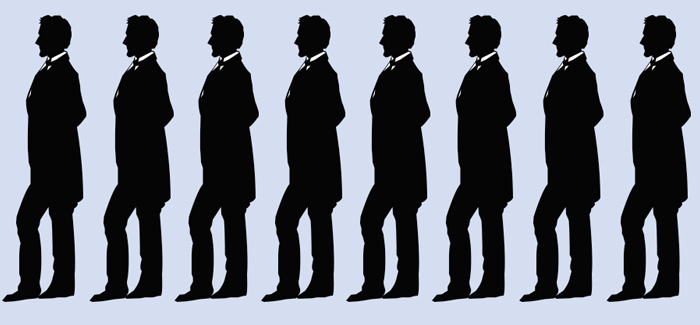
(Image courtesy the Institute of Politics)
Gettysburg addressed
Scholars explore the rhetorical, political, historical, and moral significance of Lincoln’s long-remembered words.
A tepid invitation asking Abraham Lincoln to deliver “a few appropriate remarks” dedicating the Gettysburg battlefield cemetery arrived on November 2, 1863, just over two weeks before the ceremony. Not everyone requested the honor of Lincoln’s presence.
“Some of the organizers did not want him to appear at all, let alone speak,” said law professor Dennis Hutchinson, one of seven speakers at an Institute of Politics event elaborating on those few appropriate remarks on their 150th anniversary. “The fear was that his aggressive, stump-speaking style would be inappropriate for the solemn tone of the occasion.”
A Union victory at Gettysburg the previous July, combined with the coinciding Confederate surrender at Vicksburg, gave the battle huge psychological importance to the Union. Lincoln also lost close friend General John F. Reynolds on the Pennsylvania battlefield. And when he learned of state and local efforts to construct a cemetery there, Lincoln met with the architect to discuss its design. “Gettysburg burned a deep groove in his thoughts,” Hutchinson said. “But should he go?"
Developments in the war, and a son stricken with scarlet fever, made it difficult to leave Washington, but the national significance and political implications—Pennsylvania represented a quarter of the necessary electoral votes in 1864—overruled any reservations. Lincoln made his decision to attend on November 14. That left five days to compose his remarks, a task he normally spread over weeks or months, Hutchinson noted, “with multiple revisions and oral dress rehearsals.”
A dawn horseback ride around the battlefield on the day of the dedication moved him deeply and he discarded part of his draft, rewriting in the solemn mood of the moment. The emotion infused his words and his delivery. “When he declared that ‘the world will little note, nor long remember what we say here, but it can never forget what they did here,’ his voice almost cracked and he was forced to recompose himself,” Hutchinson said. “On his reading copy the word ‘did’ was underscored in pencil for emphasis.”
Lincoln’s emphasis on the theme of universal equality from the Declaration of Independence gave the Gettysburg Address its historical resonance, even as it oriented the speech in its time. In 1863, four score and seven years after the signing of the Declaration, the self-evident truth that “all men are created equal” was becoming the central thesis of the American idea. “But in 1776,” said Eric Slauter, associate professor of English language and literature, “that’s not how most Americans would have seen the Declaration.”
